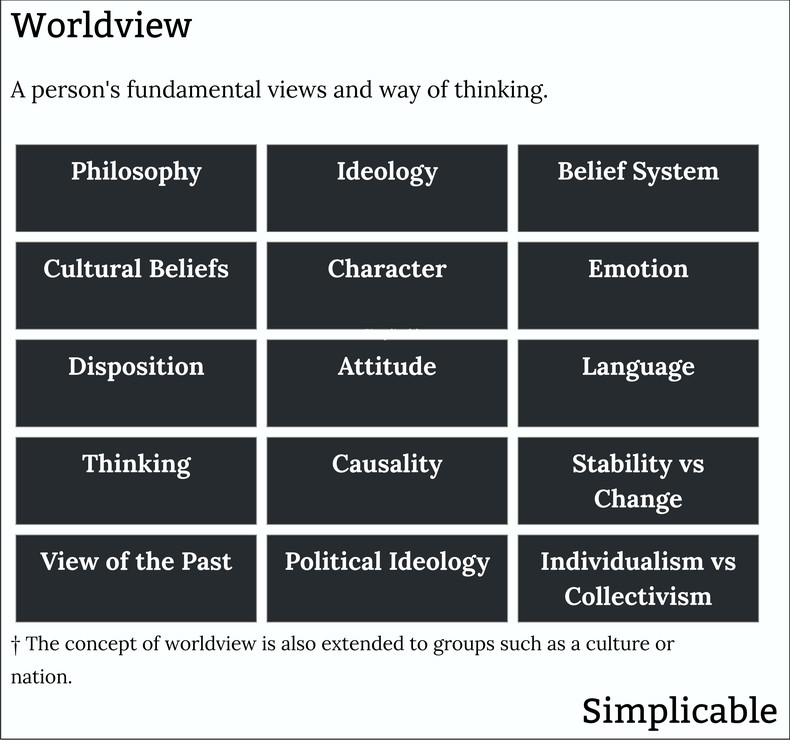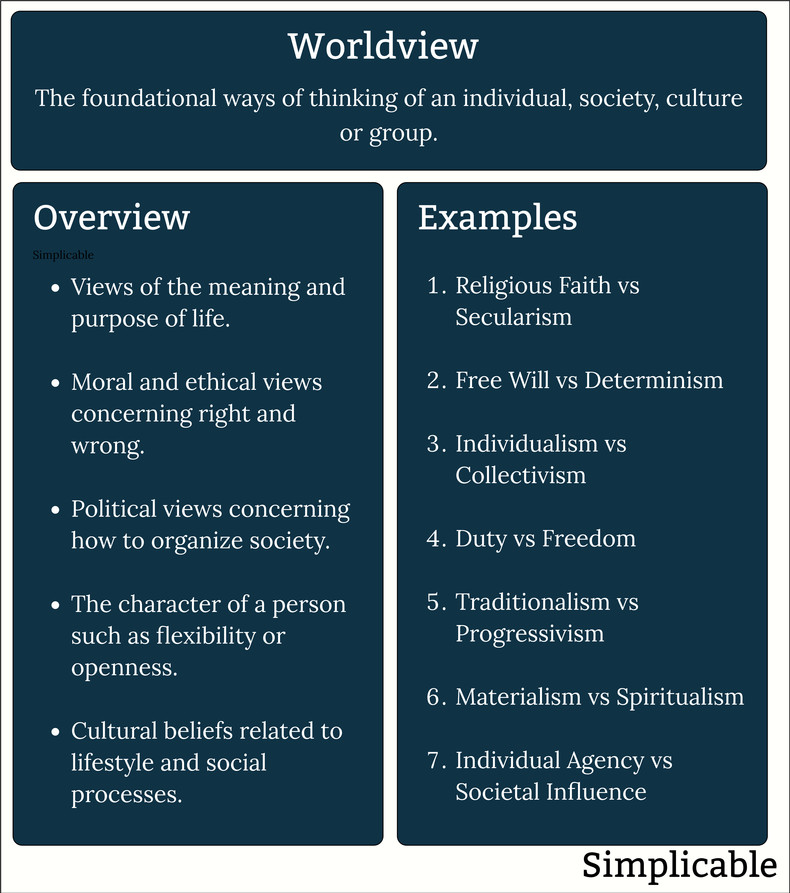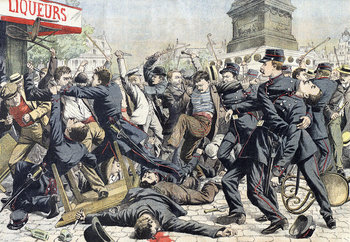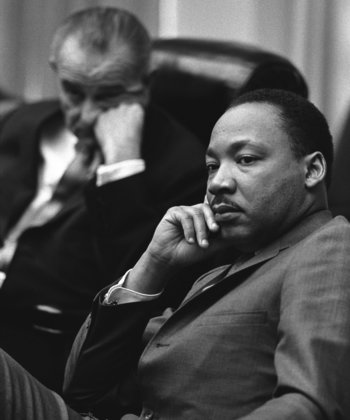
Philosophy
Philosophy are questions or answers regarding the most fundamental questions of life such as the nature of reality. For example, realists view the universe as completely physical and idealists view the world as a product of thought.Ideology
An ideology is a system of ideas that allow groups to align. For example, conservatism that embraces tradition or progressivism that seeks aggressive change.Belief System
A system for interpreting life and society include elements such as philosophy, rules, principles and stories that demonstrate a moral or ethic. As systems, these allow people to share beliefs in a way that may be conductive to cooperation, civility and stability.Cultural Beliefs
Cultures are shared norms, stories and experiences that people value together as a group. This includes belief systems that relate to lifestyle, way of life, tradition and social processes. For example, the belief that it is important to take time for rest and quality time with family.Character
Character are the mental and mortal qualities of an individual including their personality. This is formed with a process of experience and directed effort and can be changed with time.Emotion
Emotions are mental states that color all thoughts. For example, optimism that allows an individual to embrace life or pessimism that causes weariness and fear.Disposition
A disposition is a tendency towards a particular emotion or mode of thinking. For example, an individual who is easily angered versus an individual who is relatively unaffected such that they don't allow others to influence their feelings easily.Attitude
An attitude is a settled way of thinking and feeling about something. For example, an individual who has decided they dislike travel.Language
As people commonly think using language, language provides the basis for a worldview. For example, a language may include important philosophical concepts that can't be translated directly into other languages.Thinking
Individuals have different approaches to thinking that impact worldview. For example, an individual who tends to be logical or who makes heavy use of visual thinking.Causality
Causality is the relationship between cause and effect. Views of causality are a fundamental aspect of worldview. For example, an individual's sense of agency whereby they believe or do not believe that they control and are responsible for their future.Stability vs Change
An individual's view of unknowns, risk, change and stability. Those who value stability will tend to maintain tradition and only change in carefully planned and methodical ways. Those who value change may seek to escape tradition and take risks.View of the Past
Viewing the past in a positive or negative light. For example, nostalgic views that the past was idyllic.Political Ideology
Alignment to a political ideology that outlines an approach to organizing society.Individualism vs Collectivism
Views of human rights, freedoms and duty. Individualism emphasizes freedom from society while collectivism emphasizes duty to society.Summary
The following are basic elements of a worldview.
Overview
A worldview is a fundamental way of thinking that is characteristic of an individual, society, culture or group.
| Overview: Worldview | ||
Type | ||
Definition | The fundamental cognitive orientation of an individual or group. | |
Related Concepts | ||






































